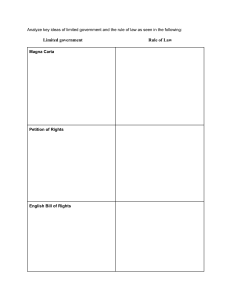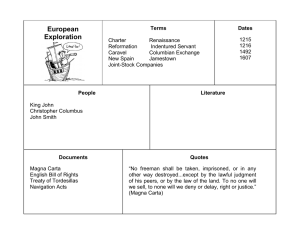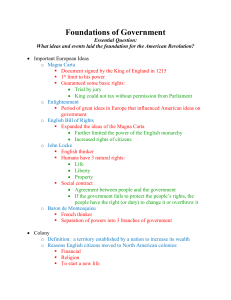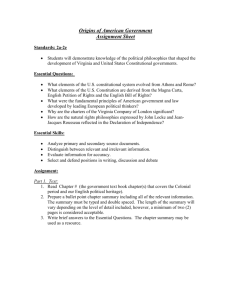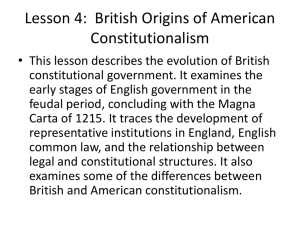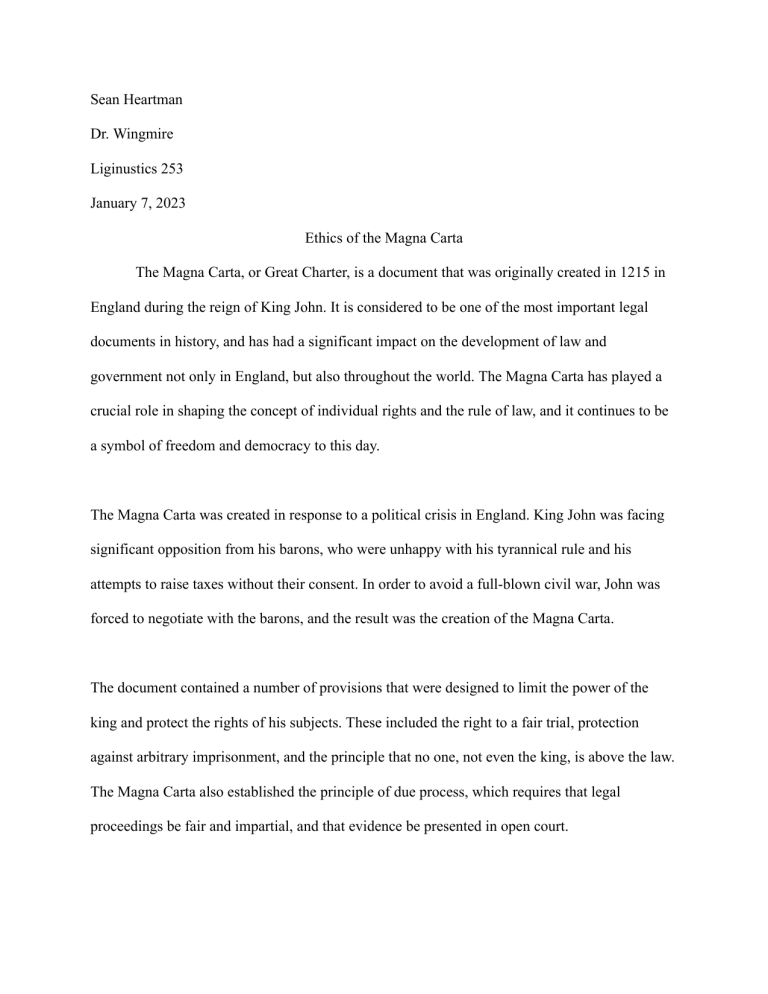
Sean Heartman Dr. Wingmire Liginustics 253 January 7, 2023 Ethics of the Magna Carta The Magna Carta, or Great Charter, is a document that was originally created in 1215 in England during the reign of King John. It is considered to be one of the most important legal documents in history, and has had a significant impact on the development of law and government not only in England, but also throughout the world. The Magna Carta has played a crucial role in shaping the concept of individual rights and the rule of law, and it continues to be a symbol of freedom and democracy to this day. The Magna Carta was created in response to a political crisis in England. King John was facing significant opposition from his barons, who were unhappy with his tyrannical rule and his attempts to raise taxes without their consent. In order to avoid a full-blown civil war, John was forced to negotiate with the barons, and the result was the creation of the Magna Carta. The document contained a number of provisions that were designed to limit the power of the king and protect the rights of his subjects. These included the right to a fair trial, protection against arbitrary imprisonment, and the principle that no one, not even the king, is above the law. The Magna Carta also established the principle of due process, which requires that legal proceedings be fair and impartial, and that evidence be presented in open court. One of the most significant aspects of the Magna Carta is that it established the principle of the rule of law. This means that the law is supreme, and that everyone, including the king, is subject to it. This is a fundamental principle of modern democratic societies, and it has played a crucial role in ensuring that governments are accountable to their citizens. The Magna Carta also had a significant impact on the development of individual rights. By establishing the principle that no one, not even the king, is above the law, it paved the way for the development of legal protections for individual rights. This has been a key factor in the development of democracy and human rights throughout the world. The Magna Carta has also had a significant cultural impact. It has become a symbol of freedom and democracy, and has been celebrated in literature, art, and music. The Magna Carta has been referenced in works by authors such as William Shakespeare and Charles Dickens, and has been depicted in art by artists such as Edward Burne-Jones and John Everett Millais. It has also been the subject of music, including a song by Bob Dylan called "Masters of War". In conclusion, the Magna Carta is a document of immense cultural significance. It has played a crucial role in shaping the concept of individual rights and the rule of law, and has had a significant impact on the development of law and government not only in England, but also throughout the world. Its principles of due process, the rule of law, and individual rights have become fundamental principles of modern democratic societies, and it continues to be a symbol of freedom and democracy to this day.
